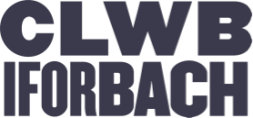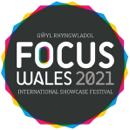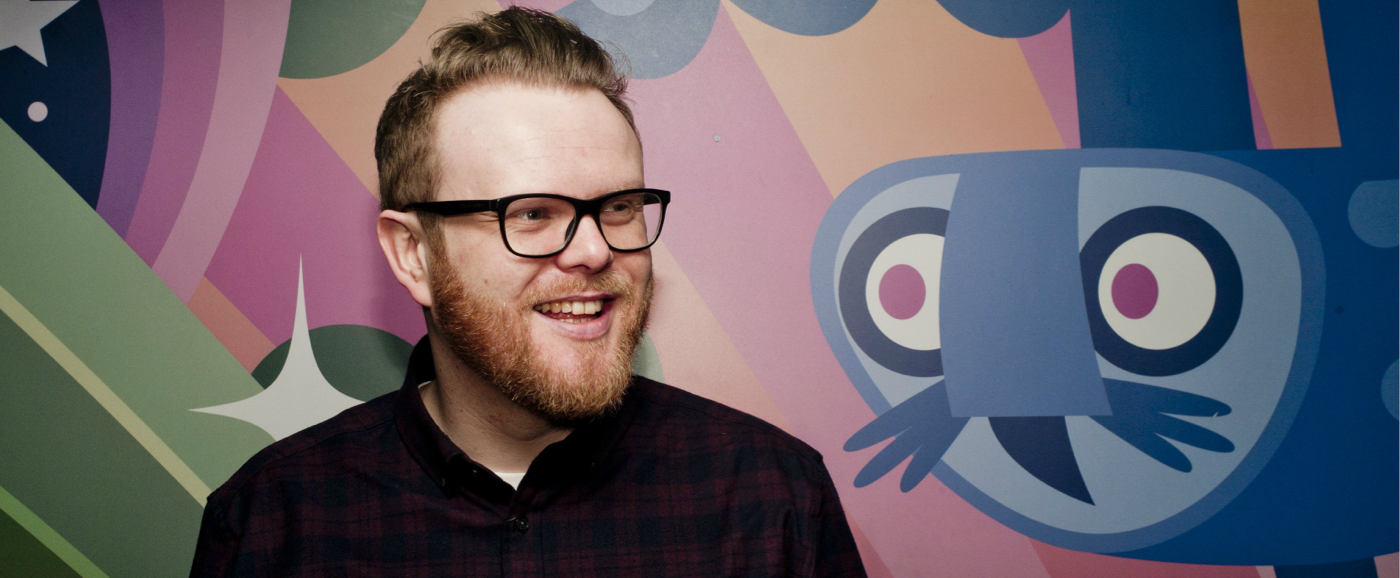A Conversation About Music Discovery
How We Listen Live: In Conversation with Huw Stephens was held virtually on April 27, 2021 and presented in partnership with FOCUS Wales, which is an annual showcase festival occurring in Wrexham, Wales. The festival features over 250 bands on 20 stages over three days. Mark your calendar for October 7-9, 2021 for this year’s event! Our venue was Clwb Ifor Bach, a famed live music venue in Cardiff, which can be credited with some of the earliest performances of artists like Coldplay and the Killers.
The following transcript has been edited for length and clarity.
Part I
In part I, Marc asks Huw how he ended up where he is, plus they talk about music discovery and sometimes being one of the only people in a club watching that new band play live for the first time.
The following transcript has been edited for length and clarity.
Huw Stephens: So I was a DJ at Radio One when I met you, twenty years ago when you were a radio plugger. I’ve still got CDs in the attic. Sitting there sweating, collecting dust. A lot of them have your stickers on them. You just sent me amazing records. I remember you telling me about the Darkness when they were trying to get their first radio plays. I mean, there were loads of bands that you brought through as a plugger.
So I ended up in the UK, where we had hospitals that have radio stations in them. I appreciate this is a luxury. I appreciate we are a western part of the world. And I appreciate this is quite a shock, because not every country has these right, Marc?
Marc Brown: It’s a very UK thing.

Huw Stephens: It was a big thing for DJs to get practice. If you’re a geek about radio, hospital radio was the place to start. It is still brilliant and doing great things. They play artists and they take requests from the patients. It’s a real community. So that’s how I started and then I managed bands. I would write reviews for local fanzines and I would do the usual review songs on the radio, I’d answer phones for the local BBC radio station and all of that. I met a BBC producer called Bethan Elfyn then, when I was 17, at a few gigs like a Gorky’s Zygotic Mynci gig in a venue called the Coal Exchange (closed in 2013). So I met her and she knew that the BBC funded Radio One station was looking to set up a new show specifically for Wales, Scotland and Northern Ireland.
Marc Brown: Was that show called the Nations?
Huw Stephens: Yes, Steve Lamacq would present it, then Zane Lowe would go on to present it. For two hours on Thursdays, Zane Lowe would broadcast across England – Wales would have us, and then Scotland, and Northern Ireland would have their own shows as well.
Then, you know, there was a big-budget, devolution was a big thing. Wales became devolved politically from the UK Government around 1999. So the BBC thought, okay, things are changing. We need to reflect that in the output of the shows. Over the years, budgets were cut and BBC budgets also had to be cut. The landscapes change, you know? Digital radio wasn’t a thing in ‘99 when we started so when you look at the UK and the British Isles, our main media is the BBC. There is a Radio Wales, there’s a Roger Camry broadcasting in the Welsh language as well there’s a Radio Scotland. But also across the UK, you’ve got all these local radio stations. So if you live in Darby, Nottingham, Northampton or Sheffield, there is a BBC radio station dedicated just to your patch.
Marc Brown: So was the goal of that show to highlight Wales mostly?
Huw Stephens: So it was a mix. We’d play Welsh artists and Welsh bands. And when I say Welsh, by the way, I mean bands from Wales. It’s important to differentiate between that and the Welsh language. Welsh music is, for me, music from Wales. Alongside the Arctic Monkeys and Simian Mobile Disco or whoever was relevant at the time, we wanted to portray Welsh life on the BBC and on Radio One. We’d occasionally take those shows to stand in for Steve Lamacq or Zane Lowe and exciting things like that. We’d be on just before John Peel so there’d be a bit of a crossover there occasionally, which was wonderful because he’d support a lot of the artists that we were playing as well. Then venues like this, we’d do live shows, we’d go across Wales or we put on MCs and DJ nights and we’d record it and take it to air. That’s how we started. That was 22 years ago. Since then, I’ve gone on to do daytime shows.
The difference between a nighttime show where you get to play two hours of what you want, as opposed to a daytime show, where you got to pick only three records, one record an hour. So you’d have to make them count.
Marc Brown: Let’s just explain that to people because I think that’s a question that comes up a lot. If you have a show in the evenings, you get to play more of what you want, right?
Huw Stephens: Yeah, traditionally. But, community radio stations, your student stations and stations like sex music, you know, those nighttime shows can be on in the daytime. You can listen, midday to a show that broadcast at 4 am, then you can. So I think those lines have blurred a lot in terms of what’s daytime? What’s nighttime? I think more niche and more specialist radio is the way forward? It’s what people want.
Marc Brown: But traditionally, in the daytime, the DJ hasn’t actually picked those tracks? Most of those tracks? They’re picked by more of a committee. Is that right?
Huw Stephens: Yeah, the playlists on stations usually run until 6 pm when Annie Mac starts her show and then the nighttime shows are all handpicked by the DJs with the producers helping out as well.
Marc Brown: So, you’re doing this show in Wales and you’d have to fill a couple of hours with music. How did you do that? You don’t just make it up on the fly? Do you? How did you figure out what to play?
Huw Stephens: It was a mix but it was never done on the fly. It’s always pre-planned. Occasionally, there’s a request that will come in or this record is making us think of this other record. So you drop that in. But normally, there’s a lot of pre-planning going into things.
Back then it was a mix of pluggers sending us records. Then, over the years, that changed to people just sending in music. You said in your opening talk, Marc, that people don’t send CDs in plastic bags anymore. Believe it or not, it still happens! People still give memory sticks or CD-Rs of things during gigs (when gigs happened) or at conferences. Personally, I prefer things online. I think it’s easier to manage. I think it’s easier for everybody. It keeps costs down, is greener, and all of that. It’s obviously the way forward.
“Personally, I prefer things online. I think it’s easier to manage. I think it’s easier for everybody. It keeps costs down, is greener, all of that. It’s obviously the way forward.“
Then over the years, introducing was a big part of what I did at Radio One as well, BBC Introducing.
Marc Brown: Well, let’s explain that a bit. Because there are a lot of people here today who aren’t from the UK. BBC Radio is publicly funded. It’s like the CBC in Canada or NPR in the US. What was “Introducing”?
Huw Stephens: As I mentioned earlier, the BBC has a lot of stations dotted around the UK and a lot of shows for supporting new music. Instead of being standalone islands supporting new music, the BBC thought that there would be more synchronicity so that the music would have more of an impact. So if a show in Northern Ireland would hear something amazing, they could pass it forward.
So the Introducing shows, there’s a free website where people can upload their music, regardless of genre, from classical and jazz to grime and rap. There are no rules. You get to upload, I think, three tracks and then you can tick a box saying where you’re based or the shows that you think might like your music. That was a good way for artists to contact local radio stations and DJs to get the support that they need early on. And it’s worked really well.
The stage goes to Glastonbury and Reading. They go to T in the Park and so it has a big presence. I think the BBC, like lots of big media organizations over the last couple of years, have had to make more of an impact with less money and think about how to make things more, more dramatic and more interesting to capture people’s imagination. It benefits the artists that it’s playing. So yeah, it’s an interesting one. But as you mentioned, the BBC is publicly funded in the UK so there’s a budget to make this happen.
Marc Brown: So back to Cardiff and you’re being sent records by people like me. These people are paid to try to convince you to play records. But you’re not just sitting there waiting for things to hit your desk. What do you like? How did you find those records? Did you just rely on what other people told you? Or do you decide for yourself? How does that mix happen?
Huw Stephens: I think naturally we all find music in so many different ways and we haven’t got just one route. I was very aware when I joined the BBC about impartiality. You’ve got to have that kind of “get up and go” to find things yourself. So, where do I find music? I suppose it’s the title of the session, isn’t it? #HowWeListen.
The record shops have always been an important part of my musical discovery. Sometimes going in, hearing something, buying it and falling in love with it. Like an artist called Marisa Anderson, who I’m a big fan of and I heard played in the Honest Jon’s record shop once in London. I have been a fan of hers ever since and continue to play it on the radio. Also, online, I check out what Spiller Records are selling in Cardiff, Drift Records are selling in Totnes or Piccadilly Records in Manchester. The Rough Trades shops have got so much but it’s smaller batches and it’s the smaller shops who have more time to recommend two or three things rather than 20 or 30 things. Listing in magazines, gigs where you can find who is being booked to play where, who’s playing festival bills lower down. Check out Andy’s FOCUS Wales.
I have booked Lake Stage at the Latitude Festival for 10 years. Plus, I promoted a gig in London once a month at the Social Venue just off Oxford Street, which was a free gig with three or four bands every month. I would talk to agents to find music for that which fed into my radio shows as well. Often I’d hear about bands from the agents earlier than from the radio people, so it was a good way of keeping my ear to the ground.
In terms of keeping busy, I’ve always enjoyed finding things and hearing bits and bobs. I’ve always enjoyed finding stuff in other people’s radio shows. It sounds obvious but when people ask me how do I get into radio? The first thing I ask is what radio shows do you listen to? And are you making it already? Are you making radio yourself? Because there’s no excuse not to be doing that. I listened to a lot of incredible radio shows like Gilles Peterson on BBC 6 Music or Tom Ravenscraft or Adam Walton on Radio Wales. There are loads of great community stations as well and in the UK, like Worldwide FM that does incredible things. NTS is massive as well.
Marc Brown: Before this, someone asked about Pay to Play and how bad is it to play a gig when there’s no one there?
Huw Stephens: I’ve been to clubs, tons of times when no one is there. But Pay to Play is terrible. I think if promoters want you to play, they want you to play, and nobody should pay to play for a gig. Having said that, I’m aware that sometimes you have to pay petrol and other costs, which is not fair either. Sometimes the bands only just about cover their costs. Some would sell merch, some didn’t have any to sell. The venue makes money off the bar, which is how it kind of makes its money. And that was the business plan. It’s the same with Swn Festival in Cardiff, we set that festival up ten years ago and lost loads of personal money.
“…Pay to Play is terrible. I think if promoters want you to play, they want you to play, and nobody should pay to play for a gig. “
Marc Brown: I remember that period, actually.
Huw Stephens: We never ever made a penny but it still exists. And now it’s run by Clwb Ifor Bach, which is great. You’ve heard of bands turning up to venues and the promoter saying to them, how many people do you expect him to come and see you tonight? That’s not the band’s job. That’s the promoter’s job surely.
Marc Brown: In your role, do you feel you need to go to every gig and have it be packed in order to be impressed?
Huw Stephens: If I turned up to a gig to see a band?
Marc Brown: Yea, and if there was no one there? What would you think?
Huw Stephens: Oh, god, no one cares. I’d definitely stick around to watch the artist(s). I went to see a rapper called Flo Ohio playing. Granted, it was at Glastonbury Festival. So you know, there are already 200,000 people there. When I went to see her play, there was me, my wife and about 10 other people there. And she was incredible. And it was amazing. And it didn’t matter that there were only 10 of us there. So no, it doesn’t matter.
I think it only matters when big companies need a hit and needs impact. And they want to know how many social media followers you have. Luckily, thanks to the BBC, we can take risks. We can support artists who might not have any followers on social media and who might not have been in a proper studio or whatever. That’s the beauty of public service broadcasting, isn’t it?
Want to keep reading? Head to part II here!
In part II Marc and Huw talk about how musicians need to develop a supportive community, and how singing in Welsh can work for you, and then Huw takes a few audience questions.
In partnership with:






